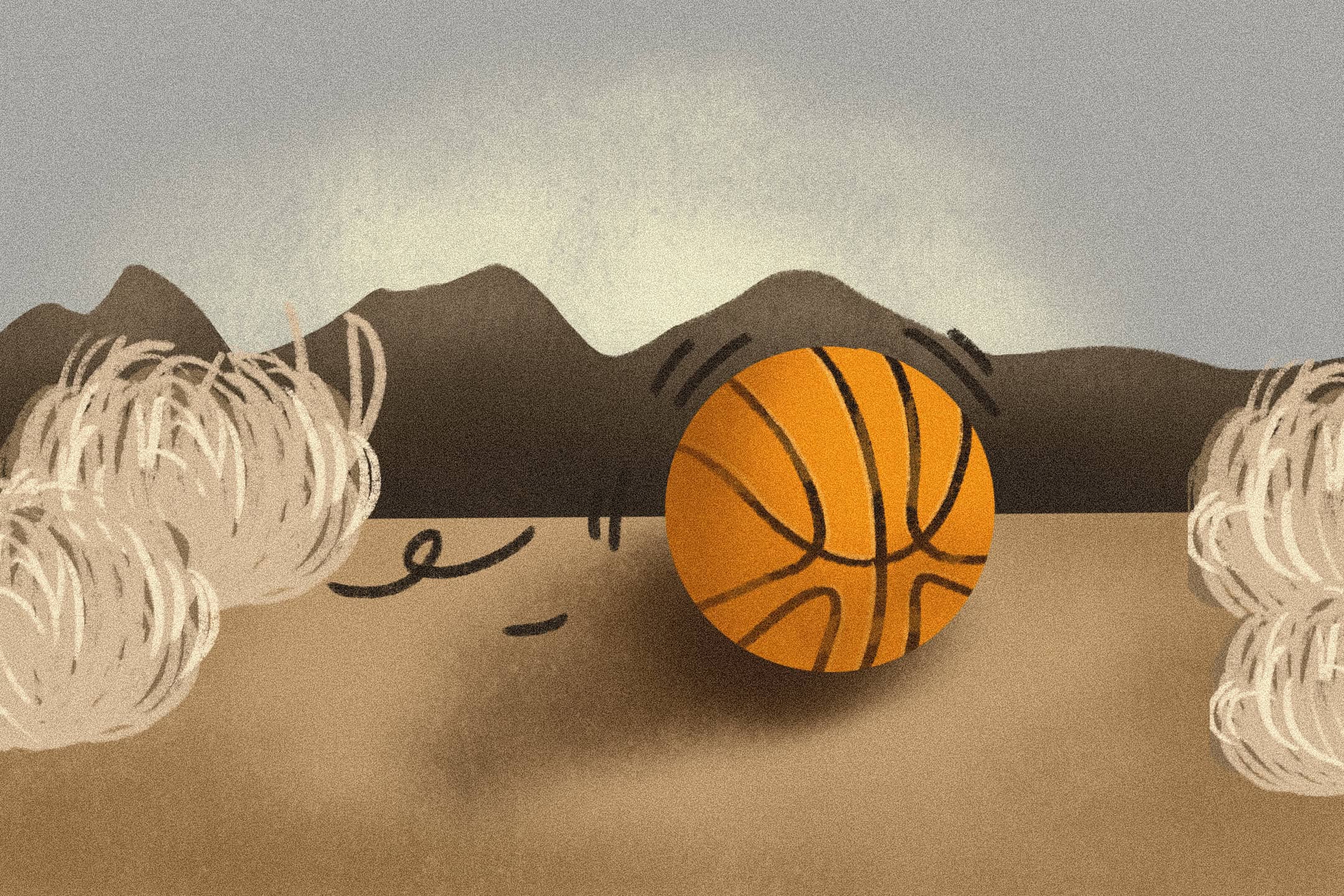Content warning: This article mentions substance use, suicide, and systemic violence.
This article contains spoilers.
Beyond the bold maneuvers on the court and call-outs in Diné bizaad — the language of the Navajo Nation, or Diné meaning ‘the people’ — Rez Ball (2024) touches upon systemic issues Indigenous youth face while living on reserves.
Diné director Sydney Freeland’s film introduces a charismatic and emboldened team of young men — the Chuska Warriors — who navigate the tragic loss of their team leader Nataanii Jackson (Kusem Goodwind) while preparing for a nerve wracking regional basketball competition. The narrative focuses on player Jimmy Holiday (Kauchani Bratt), who feels pressure as the team’s new leader to carry on his late friend’s legacy
Initially, I thought the film would focus on Jimmy’s perspective: instead the narrative is split into several perspectives — his teammates, his mother, and his coach — broadening our understanding of the various struggles that Indigenous peoples face. The team’s Coach Heather Hobbs (Jessica Matten) wants to change the team’s tense dynamic while contemplating whether to stay on the reserve or to pursue another career off reserve.
Jimmy’s mother, Gloria Holiday (Julia Jones) is a former high school basketball star herself. Gloria’s an unemployed mother with multiple driving-under-the-influence records, who wants to improve her life by finding a job and sobering up.
In reference to Nataanii, Gloria tells Jimmy that “It’s not like he’s the only one. It happens all over the Indian country,” or when Jimmy’s best friend Nataanii says “Do you ever think about… getting out?” before taking his own life highlight how life on the reserve forces youth to mature faster due to exposure to alcohol and substance use, high suicide rates, teen pregnancies, as well as external discrimination by law enforcement.
Many of the actors in the film were first-time actors, but taking on Indigenous characters as Indigenous actors made it easier for them to adapt to their roles. First-time actor Jojo Jackson claimed that bonding with each other was natural as everyone was “in the same boat.” Jackson plays Warlance Yazzie, a gay, Two-Spirit power-forward for the Warriors.
In her conversation with Time magazine, Freeland said of the actors that, “These are rez kids… there are no doubles in this movie, these kids are all playing ball.” The film’s authenticity goes beyond casting an Indigenous crew, it also incorporates Diné’s language — a powerful aspect of the film in that it symbolizes a solution for their struggles in the season.
After constant arguments and fights, Coach Hobbs takes the boys on a team-building trip to her grandmother’s. The boys are tasked with rounding up Hobbs’ grandmother’s sheep that have broken out of the fence, allowing them to develop their teamwork. Jimmy comes up with the idea of using Diné bizaad to direct the sheep, and the team successfully chases the herd back. The scene innovatively used Indigenous language and culture through a positive angle in approaching Indigeneity, which is not often seen in mainstream media.
The scene also added a twist to the plot: the rebirth of the team’s vibrant play and a new Diné bizaad-spoken tactic, which made their next moves unknown to the non-Diné bizaad speaking opponents. Calling the tactic ‘rez ball’, they would use it to dribble their way into the state championships.
As I watched the players shift and slide across the court, shouting Diné codes like ‘Hot Hand’ or ‘Bulldog’, I was moved to tears. Though it followed a familiar narrative of a protagonist’s victory, the moment Jimmy struggled to sink the free throws was still nail biting. Along with the team’s rocky season and the pressure he felt to win in honour of his late friend, I genuinely wondered if he’d miss the shot when the doubts his mother instilled in him were coming back to him.
Miraculously, he proved those doubts wrong. Beyond the triumph of achieving a goal, this scene holds a deeper message for me; it’s about challenging and overturning the negative stereotypes often associated with Indigenous identities.
I hope that with the premiere of this film in September — along with movies like Killers of the Flower Moon (2023) starring Lily Gladstone, of Blackfeet and Nimíipuu heritage, and TV shows like the 2024 live action Avatar: The Last Airbender, in which Kiawentiio, born in the Mohawk community of Akwesasne, plays Katara — Indigenous cast members and Indigenous narratives become more common on screen.
As Jimmy said, ‘Stoodis’ — let’s do this.



No comments to display.